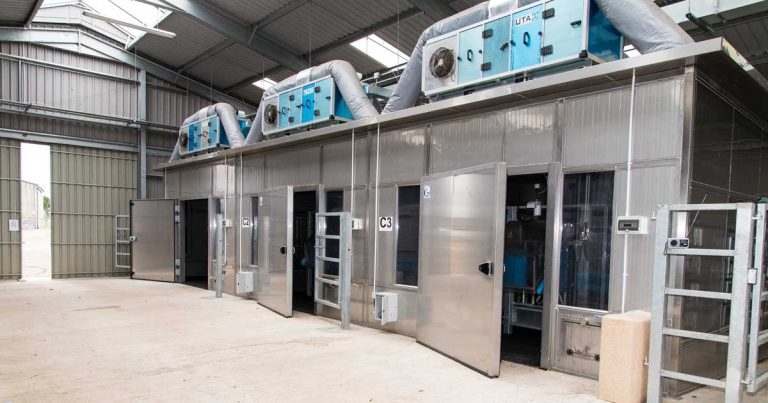29 Aug 2024
SRUC says its new facility will be one of only a few in the world that can measure all emissions from livestock when it is operational.

The current SRUC GreenCow facility.
Research exploring ways to potentially mitigate the impact of greenhouse gas emissions from livestock has been boosted by funding from a UK Government agency.
Around £700,000 has been allocated for new equipment to support the SRUC’s UltraGreenCow initiative by the Biotechnology and Biological Sciences Research Council.
College officials hope the new facilities will be in place by next summer and say the site will be one of only a few globally that can measure all livestock emissions.
The project, which will build on the work of the college’s existing GreenCow facility, is one of almost 30 to have received a share of nearly £13 million in funding intended to help the UK achieve net zero by 2050.
Research fellow and project co-lead Gemma Miller said the work will help to provide “essential data” to assist the development of mitigation measures.
Although a UK Government Agriclimate report, published earlier this year, said total agricultural greenhouse gas (GHG) emissions had fallen by around 12% between 1990 and 2021, they still account for 11% of the overall total.
Dr Miller said the industry also accounts for 87% of total ammonia emissions, with 50% of agricultural GHGs and 75% of ammonia emissions being associated with livestock or their waste.
She said: “Therefore, reducing emissions of these gases from agriculture is vital to meeting these ambitious commitments.
“However, there is a real risk that implementing a mitigation measure to reduce one gas could lead to increases in one or more of the others.
“Currently there are very few facilities with the capability to measure emissions of all these gases simultaneously from individual animals, which is apparent in the low number of studies reporting all of them.
“Gaining comprehensive data supporting reductions in all emissions will improve cohesion between different policy objectives and help improve farmer and consumer confidence, leading to greater uptake of mitigation measures.”
The news follows the recent announcement of a US$9 million funding package from the Bezos Earth Fund to support separate studies led by the RVC and The Pirbright Institute to explore ways of reducing methane emissions from livestock production.